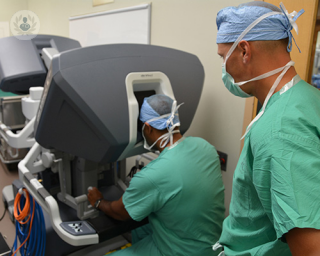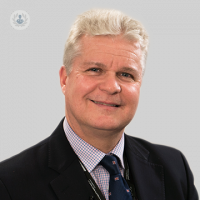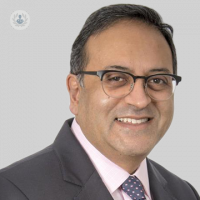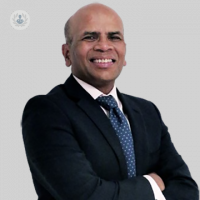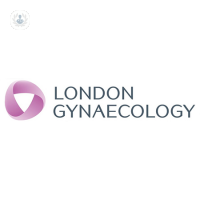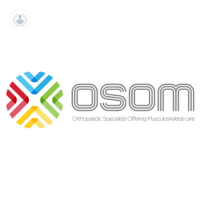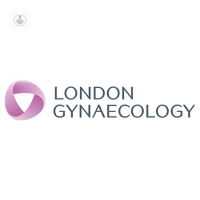Robotic surgery
Professor Lee Jeys - Orthopaedic surgery
Created on: 11-13-2012
Updated on: 04-05-2024
Edited by: Conor Dunworth
What is robotic-assisted surgery?
Robotic-assisted surgery, or robotic surgery, using the da Vinci System, the Mako system by Stryker, among other systems, allows surgeons to perform surgical procedures in a very accurate way. Operations are performed with more precision, flexibility and control, compared to using conventional techniques. Robotic-assisted surgery is commonly associated with minimally invasive surgery, where procedures are performed using tiny incisions.
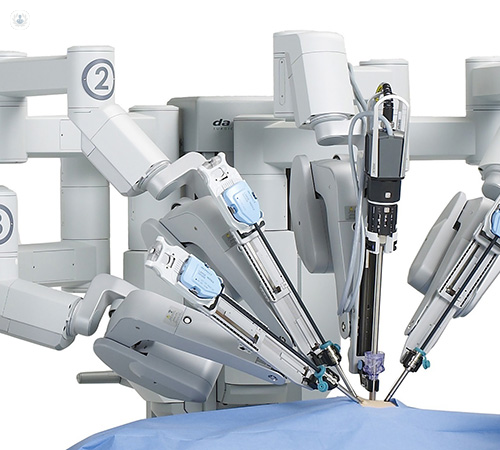
How does robotic-assisted surgery work?
Robotic-assisted surgery uses a camera arm and mechanical arms with surgical instruments attached to them. The surgeon is, as a direct result, able to control the arms whilst seated at a computer console near the operating table.
The surgeon has a high-definition 3D view of the surgical site and leads other team members who assist them during the surgery. The surgeon makes small cuts to insert the instruments in the patient’s body. A thin tube with a camera attached to the end of it, (just like an endoscopy), enables the surgeon to view enlarged 3D images of the patient’s body during the surgery. The robot corresponds and matches the hand movements of the doctor to perform the procedure using tiny instruments.
What is robotic-assisted surgery mainly used for?
There are many surgical procedures where robotic-assisted surgery is used. The main ones include the following:
- cardiac surgery
- colorectal surgery
- general surgery
- gynaecological surgery
- head and neck surgery
- thoracic surgery
- urological surgery
What are the advantages and risks of robotic-assisted surgery?
Surgeons who use the robotic system find that, for many procedures, it enhances control during the operation, and allows them to see the site more clearly. The benefits of minimally invasive surgery include:
- fewer complications, such as infections
- reduced blood loss and transfusions
- reduced pain and discomfort
- quicker recovery time – shorter hospitalisation and faster return to normal activities
- less noticeable scars
Despite having many benefits, robotic-assisted surgery also has its fair share of small risk factors, which may be similar to those of conventional open surgery. The main potential risks could include:
- infections
- bleeding
- mechanical failure
Who are ideal candidates for robotic-assisted surgery?
The ideal patient for the robotic-assisted procedure is someone who has not had many abdominal surgeries. Typical abdominal surgeries such as an appendectomy, gallbladder removal, and hernia repair, do not exclude individuals from having robotic surgery. The decision will be made by the surgeon. Patients with prevalent cardiovascular and pulmonary diseases may require more consideration beforehand.
How long does it take to recover from robotic-assisted surgery?
Traditional open surgery recovery time can last several months, including several days of hospitalisation. Even though every case of surgery is unique, the return to everyday activities for a patient following robotic-assisted surgery can occur in as little as two to three weeks.







